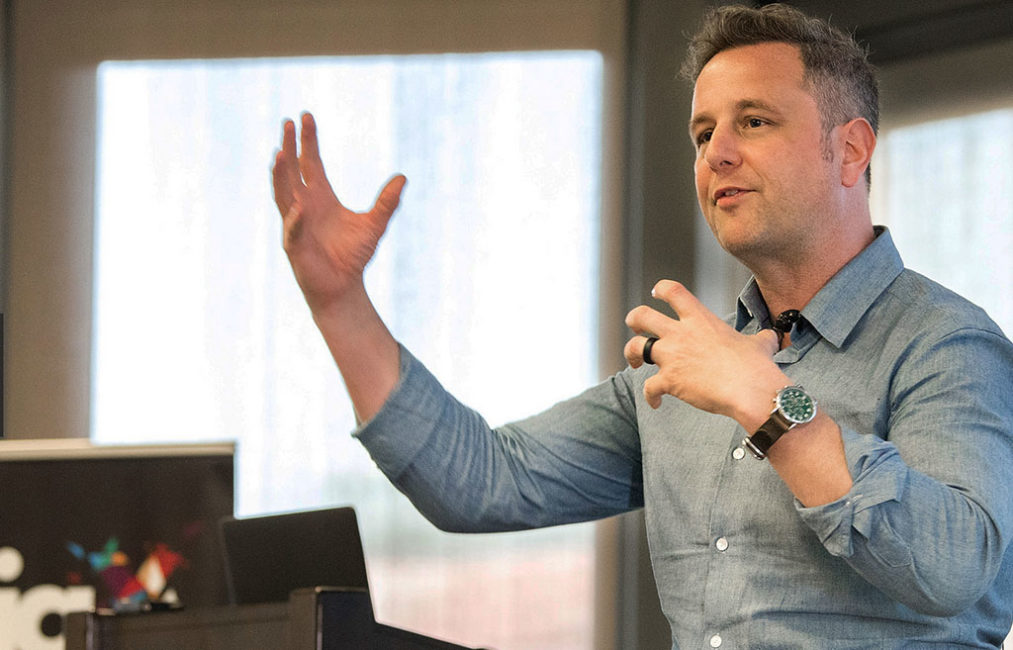Human-Robot Interaction through the Lens of Learning and Control
May 12, 2020
Machine learning and control theory have made substantial advances in the field of robotics in the past decade. However, there are still many challenges when studying robots interacting with humans. Dorsa Sadigh continues the mediaX webinar series "Thinking Tools for Wicked Problems", and will discuss her insights on this issue.
A Wicked Problem About Thinking: Cognitive Security
May 5, 2020
Cognitive Security is concerned with protection against malicious online and offline influence at scales ranging from individuals to nation states, and is foundational to national security inclusive of the public and private sectors. From the mediaX webinar series “Thinking Tools for Wicked Problems”, Brian Pierce will address this critical issue.

3 Algorithmists Meet Robin Hood
Bruce Cahan, a lecturer in Stanford’s School of Engineering and mediaX Distinguished Visiting Scholar Alum explains the roles of amplifiers, receivers and the true importance of tuners when dealing with Artificial Intelligence and Machine Learning.

Stanford 3D Computer Graphics Pioneer Wins $1M Turing Award
mediaX Thought Leader and Stanford Computer Scientist and Engineer Pat Hanrahan wins the award from the Association of Computing Machinery, often described as the “Nobel Prize” of computing.
POSTPONED! Double-Distributed Architecture: A Culture-mimetic Approach for Designing Resilient Sustainable Systems
April 14, 2020
In accordance with the new Stanford University policy aimed at stopping the spread of COVID-19 (coronavirus), this seminar is currently postponed. We hope to reschedule for a later date. If a new date is available we will announce it in the near future.
Designing In-situ Interaction with Ubiquitous Robots
January 31, 2020
Lawrence Kim is a PhD candidate in Mechanical Engineering at Stanford University where he is advised by Sean Follmer. His research lies at the intersection of human-computer interaction, robotics, and haptics with a focus on studying the interaction with multi-robot systems. He has received best paper and best paper honorable mention awards at CHI and UIST, and a Fast Company's honorable mention award in Innovation by Design. He is also a recipient of a Samsung Scholarship.
Research at the Service of Free Knowledge
January 24, 2020
Leila Zia is a Principal Research Scientist and the Head of the Research team at the Wikimedia Foundation, the foundation that operates Wikipedia and its sister projects. Her research interests include quantifying and addressing the gaps of knowledge in Wikipedia and Wikidata, understanding Wikipedia's readers, and studying the contributor diversity on Wikimedia projects. She received her PhD from Stanford University in Management Science and Engineering.

New Research Projects Focus on Rationalizing Human Learning Experiences
Three innovative projects with great potential for long-lasting impact on learning sciences have been funded by mediaX at Stanford University.

mediaX Thought Leader Helps Find That Search Results Are Not Biased Along Party Lines
In an audit of search media results for every candidate running for federal office in the 2018 U.S. election, Professor Jeff Hancock found no evidence of political bias for or against either party.